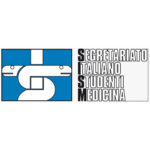
Don’t settle for receiving a teaching limited to a mere mnemonic exercise that does not employ active learning processes, require to center the teaching on the semeiological examination and on the rational that underlies every diagnostic and therapeutic process.
Too often the study of medical students is limited to a passive and mnemonic learning of a multitude of knowledges that do not find practical applications or are not used in problem solving. In doing so, these knowledges are likely to become a purely theoretical background,superfluous in the overall set of skills, abilities and competencies of the future doctor. Therefore, students must assume an active role in improving their own training, both by asking that such knowledges are applied in the context of the lessons in clinical cases and concrete examples and by promoting the concept of the relevance of information. In such a way the teaching of Medical faculties may be improved with the aim of providing students not only indispensable notions, but also critical and reworking skills necessary to deal with medical procedures and to handle clinical cases in a working context. Improving the teaching of medical students by following these principles also means getting used to looking for the rational of every diagnostic/therapeutic practice evaluating pros and cons, and hence improving the capacity to discern between necessary actions or not, between a medicine always practiced with the same approach or one adapted to the single patient situations and his needs.
Sources
1. Harden RM, Laidlaw JM. Be FAIR to students: four principles that lead to more effective learning. Med Teach. 2013;35(1):27-31.
2. Faisal R, Bahadur S, Shinwari L. Problem-based learning in comparison with lecture-based learning among medical students. J Pak Med Assoc. 2016;66(6):650-3.
Download
PDFAttention. Please note that these items are provided only for information and are not intended as a substitute for consultation with a clinician. Patients with any specific questions about the items on this list or their individual situation should consult their clinician.


Recent Comments